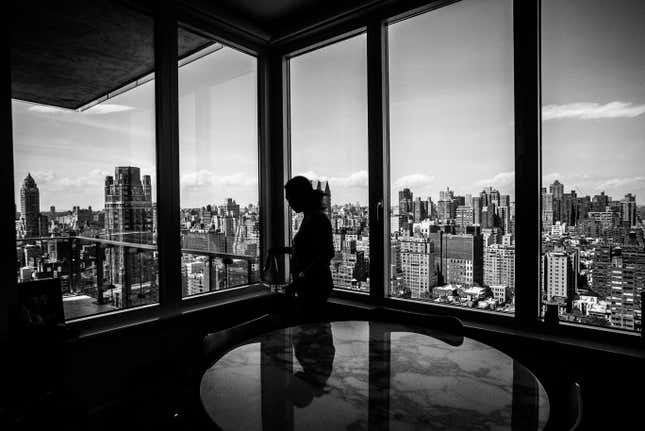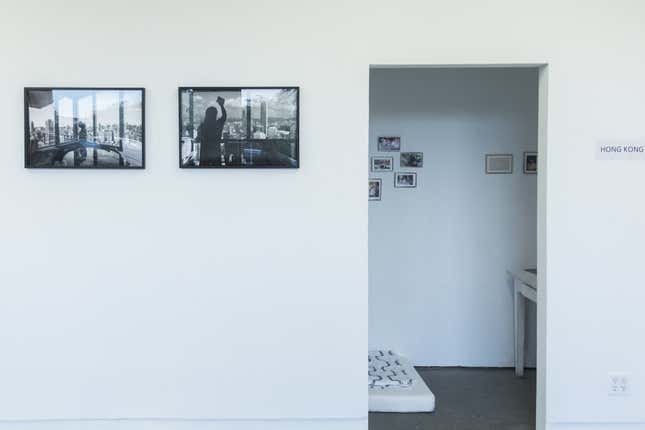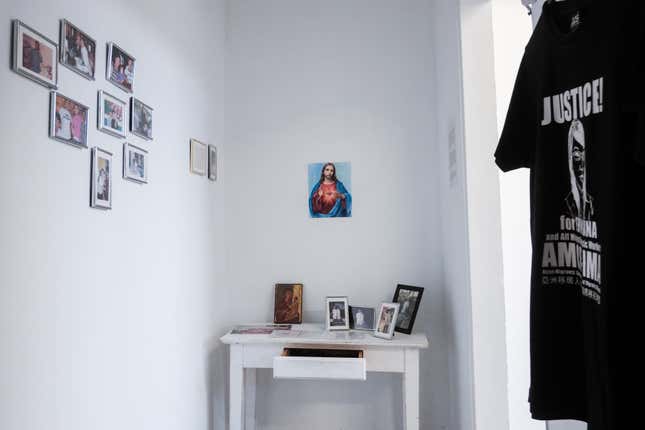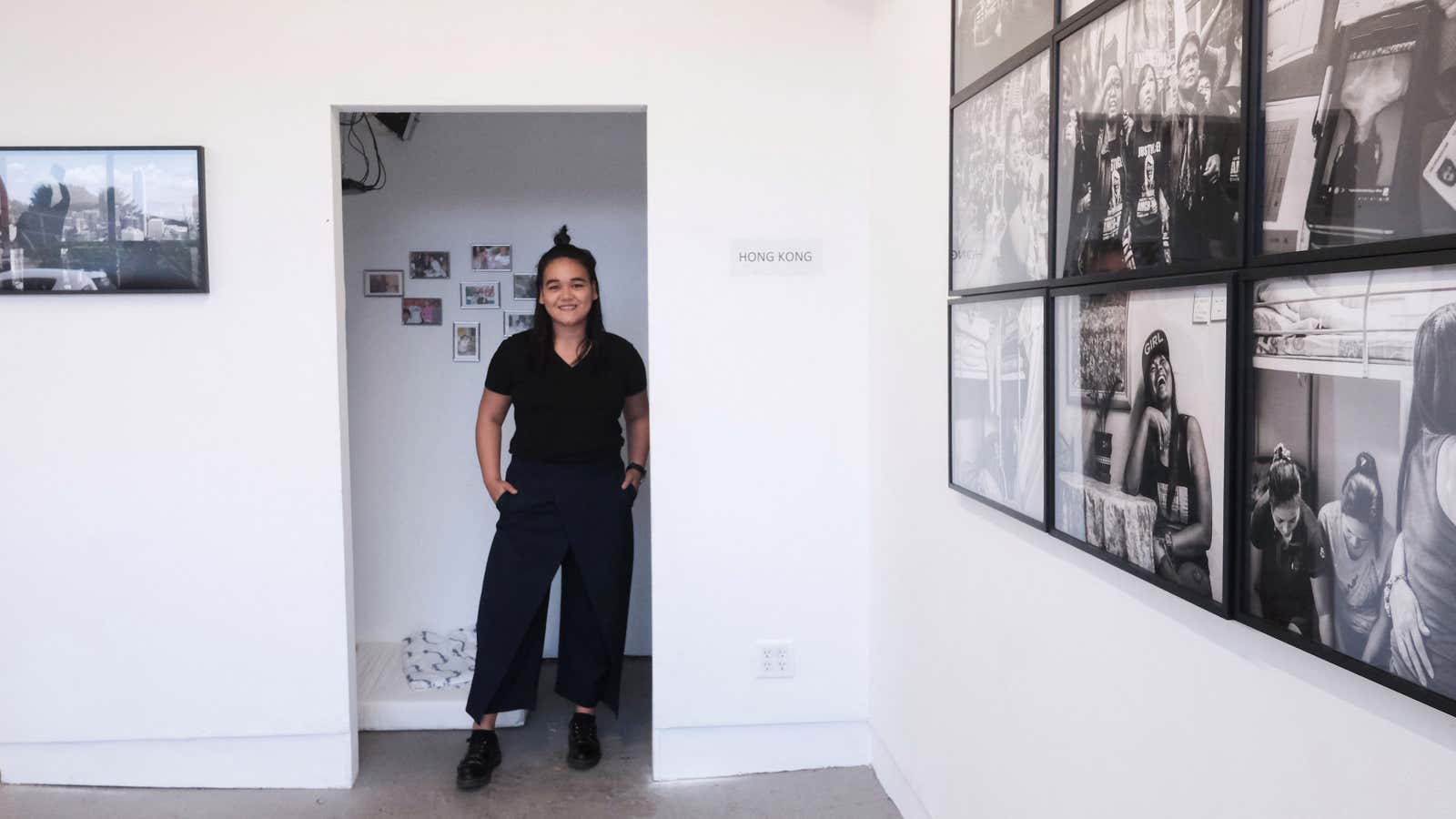New York City’s oppressive heatwave was a poetic, if unplanned, touch for We Are Like Air, Xyza Cruz Bacani’s unmissable exhibition at the Open Source Gallery in Brooklyn.
Displayed in a garage-like space without air-conditioning, the 31-year old Filipino documentary photographer’s work takes visitors into the stifling, inner sanctum of migrant domestic helpers. Having worked as a nanny in Hong Kong, Bacani has a singular perspective on the emotional lives of millions of migrants who leave their families behind in search of better incomes abroad.
Bacani’s own mother, Georgia, left their home in Nueva Viscaya in northern Philippines when she was 8 years old. At 19, Bacani followed her in Hong Kong to help earn money for her two siblings’ school fees.
Bacani explained during an August 8 talk that photography was initially a way to connect with Georgia, who was on duty as a live-in helper 7 days a week, working 16 to 17 hours a day. “She’s never seen Hong Kong, and she’s been there since 1998,” she said. “I became her eyes.” With borrowed money, she bought her first camera and quickly amassed a portfolio of luminous pictures. The unsettling beauty of Bacani’s black-and-white street photography won her fans and international fellowships.

It was around this time that she realized her camera could serve as a microphone—or at times, a bullhorn—for voiceless, suffering workers.
Her Brooklyn exhibit includes Shirley, a Filipina who suffered third-degree burns from a boiling pot of soup; Daisy, a human trafficking survivor in New York; and Erwiana Sulistyaningsih, whose employer stuck a vacuum cleaner tube down her mouth and beat her unconscious.

At the back of the gallery, a narrow video-screening nook delivers the exhibit’s emotional punch. Designed to look like a cramped maid’s quarters, visitors sit on a flimsy floor mattress to watch a video about Bacani’s family. With religious artifacts and loose clusters of family pictures on the wall, the closet-sized chamber briefly immerses visitors in the physical and mental purgatories that migrant workers endure for decades.
Fearing social media trolls, Bacani said she agonized over whether to include images of her own family in the exhibition and her forthcoming book. But diving into the dark years of their family history gave them healing, she said, which is a concept the exhibition’s video expands on. Bacani marvels, for instance, at how her parents remained romantically devoted to each other even after nearly three decades living apart.
“I’ve never thought that our story was anything special. My mother’s story is very typical,” Bacani said, referring to the 11.5 million migrant domestic workers who the International Labor Organization has surveyed. “It’s the story of millions of mothers around the world.”

The exhibit’s title, “We Are Like Air,” alludes to these invisible, but essential agents—waiters, housekeepers, drivers, fast food agents, street sweepers, security guards—who ensure the smooth operation of our convenient lives without being seen. Their personal stories, like their presence, are engineered to recede, and it takes someone like Bacani to shock us into seeing them with open eyes and hearts. Frame by frame, Bacani explores not just longing or strife but also love, folly, and levity.
“One question really sticks with me: How do migrant workers fall in love?,” Bacani said. “I was fascinated. We’re all human beings, right?”
We Are Like Air will be on view at the Open Source Gallery until August 25. The show will open in Shanghai in November.
